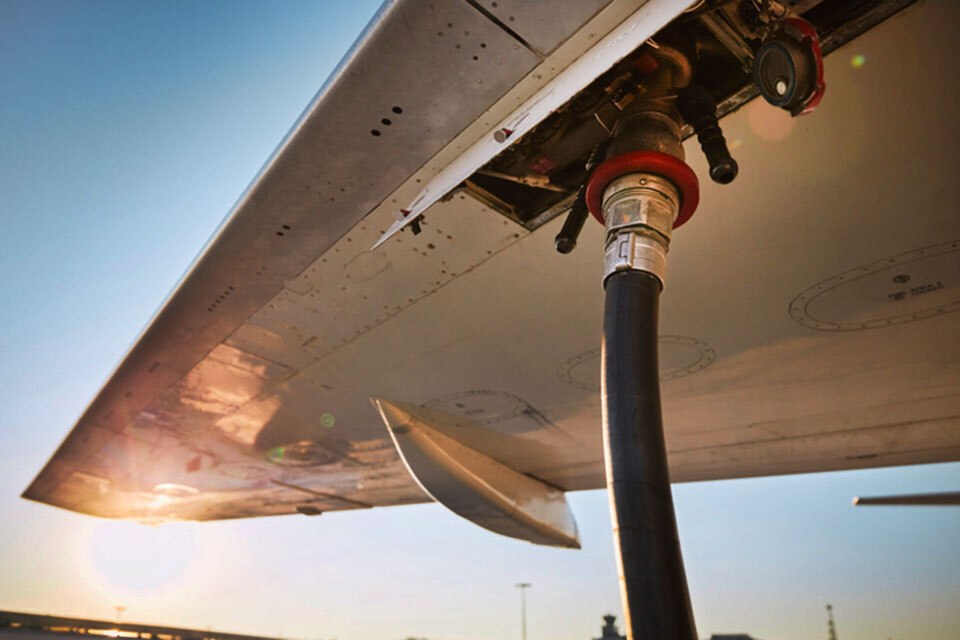- flights departing the UK will use greener fuels from today
- 10% of all jet fuel must be sustainable by 2030 as one of the world’s first sustainable aviation fuel mandates comes into force
- forms part of government’s Plan for Change and helps deliver mission to make Britain a clean energy superpower
Flights are set to be greener as the UK’s ambitious Sustainable Aviation Fuel (SAF) Mandate officially comes into force today (1 January 2025).
SAF is made from sustainable sources, such as materials like household waste or used cooking oil and produces an average of 70% less carbon emissions than traditional fossil-based aviation fuel.
By law, this type of fuel must now make up at least 2% of all jet fuel in flights taking off from the UK from 2025, growing year-on-year to 10% by 2030 and 22% by 2040.
These ambitious but achievable targets should see around 1.2 million tonnes of SAF supplied to the UK airline industry each year by 2030 – enough to circle the globe 3,000 times.
Being one of the first countries in the world to sign the mandate into law, the UK is at the forefront of decarbonising air travel and is helping to kickstart the government’s Plan for Change.
Together with the other actions we are taking to grow a UK SAF industry, it will support thousands of skilled jobs in every part of the country, deliver economic growth and help make the UK a clean energy superpower.
Minister for Aviation, Mike Kane, said
From this moment on, aviation will be a greener, more sustainable form of travel and today marks a significant milestone for the UK SAF industry.
With thousands of jobs supporting the UK SAF industry and flying becoming popular than ever, the mandate will help deliver our Plan for Change helping to grow the economy and giving people the freedom to travel in a more sustainable way.
Tim Alderslade, CEO of Airlines UK, said
UK airlines support the SAF Mandate as both a powerful and practical tool for driving down aviation carbon emissions and a clear signal that the industry is fully committed to a net zero future.
Our priority is ensuring airlines have access to the increasing volumes of SAF required to meet the mandate as global demand soars, at the most competitive price possible for consumers.
The UK mandate is ambitious and scaling SAF production will mean further work to expand eligible feedstocks, incentives to help cut costs and, critically, ensuring the design of the revenue certainty mechanism enables the UK to increase production of advanced fuels this decade whilst keeping costs as low as possible, critical for achieving mandate compliance and avoiding supplier buy-out.
Karen Dee, Chief Executive of AirportsUK, the trade body for UK airports, said
The SAF Mandate is an important step towards decarbonising air travel and we are pleased the government has continued the work of its predecessor to implement it.
Aviation knows it must reduce carbon emissions and the mandate is something that it has long called for to help establish production of cleaner fuels. We will continue to work with all parties to ensure there is homegrown supply and that the UK benefits from this new industry through jobs and investment.
Duncan McCourt, Chief Executive of Sustainable Aviation, said
Sustainable Aviation welcomes the introduction of this mandate, which will drive the demand needed to help deliver SAF at scale.
SAF is a critical component in the industry’s plan to reach net zero, representing almost 40% of the carbon reduction that will make net zero a reality in 2050.
Alongside the mandate, we also need a well-designed revenue certainty mechanism to help accelerate domestic SAF production and support compliance with the mandate, by kickstarting UK SAF production in earnest this decade. We look forward to the upcoming consultation and to the mechanism being delivered into law as soon as possible.
The start of the SAF Mandate is only one milestone on the UK’s path towards decarbonising aviation and comes following the first meeting of the Jet Zero Taskforce – a new and refreshed group charting a clear path toward cleaner aviation.
The government has also confirmed it will introduce a revenue certainty mechanism for SAF producers to attract investment in new plants in the UK.
Working alongside the mandate, it will help to reduce risk, give investors the confidence they need to invest in UK SAF plants and encourage the supply of SAF for the UK aviation sector.
A further consultation on the revenue certainty mechanism will be launched early this year.

